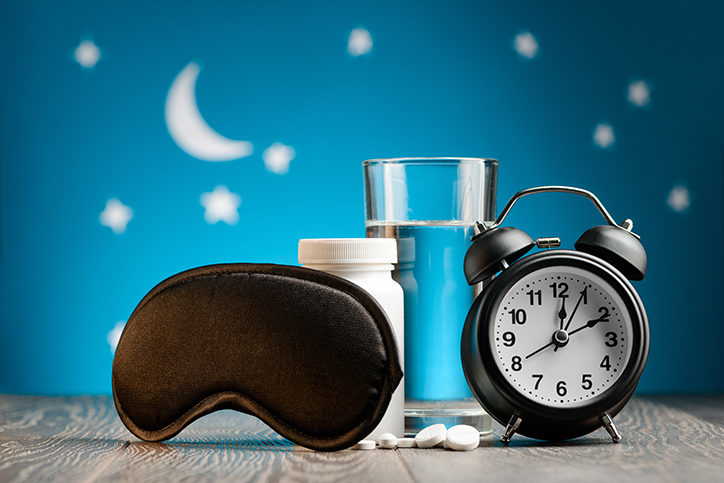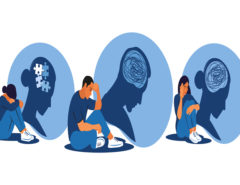Melatonin is a natural hormone made by our bodies. It can also be taken as a dietary supplement. Melatonin can help you sleep better when used in the right way and right amount. But, it may interact with other medicines you take, so ask your health care provider before using it. Below, we dive deeper into what you should know about melatonin.
What is Melatonin?
The pineal gland in our brain naturally produces melatonin. This usually begins as the sun starts to go down. Melatonin can also be purchased over the counter as a dietary supplement. It is available in tablets, capsules, gummies, or as a liquid. Most melatonin products range in strength from 1-10 mg.
How Does Melatonin Work?
Melatonin production is highest in the body around 7-8 p.m. As the sun rises and it becomes lighter outside, our bodies stop making melatonin. This cycle helps us fall asleep by keeping our circadian rhythm – our body’s natural “clock” – on schedule. It makes sure we are awake when it is light out and become tired once the sun goes down. When you take melatonin as a supplement, it works just like the melatonin that your body makes.
How Can Melatonin be Taken Safely?
Melatonin works best when taken according to the directions on the product label. Some sleep experts suggest that even a low dose of 0.3 mg is enough to help our bodies with sleep. Always start with a lower dose when you first begin taking melatonin to see how it works for you. Take the supplement at the same time that your body starts to produce melatonin at night, around 7-8 p.m. Make sure to take melatonin a couple of hours before you plan to fall asleep.
What are Some Possible Side Effects of Melatonin?
Melatonin is safe when it is used according to the directions on the product label. Side effects are rare, but the most common one is tiredness during the day. This can happen if melatonin is taken in large amounts or if it is taken too late at night or too early in the day. Take melatonin 1-2 hours before bedtime and in amounts that do not exceed the directions on the package insert to avoid side effects.
Most of the time, young children who get into melatonin do not develop any side effects. Treatment in a health care facility is usually not needed with small ingestions. But, always call your local poison center to speak with a poison expert if you think melatonin was taken in the wrong amount or by the wrong person. Poison specialists can be reached 24 hours a day, seven days a week by calling 1-800-222-1222.
Nicholas Husak, PharmD
Clinical Toxicology Fellow





Leave a Reply